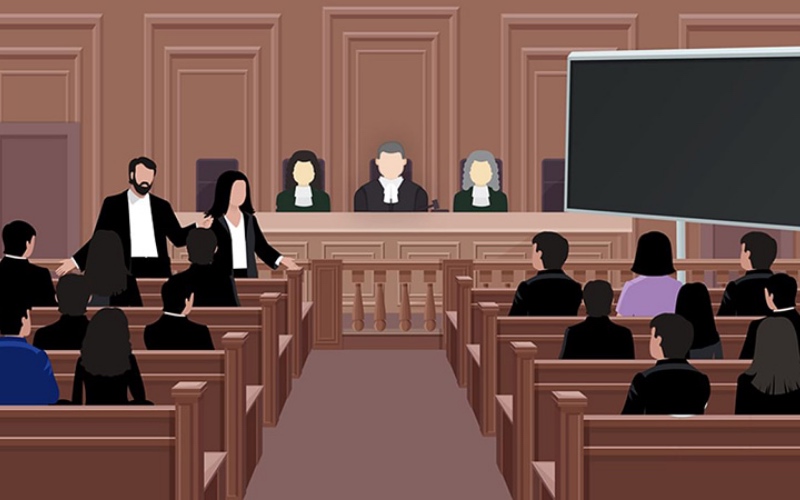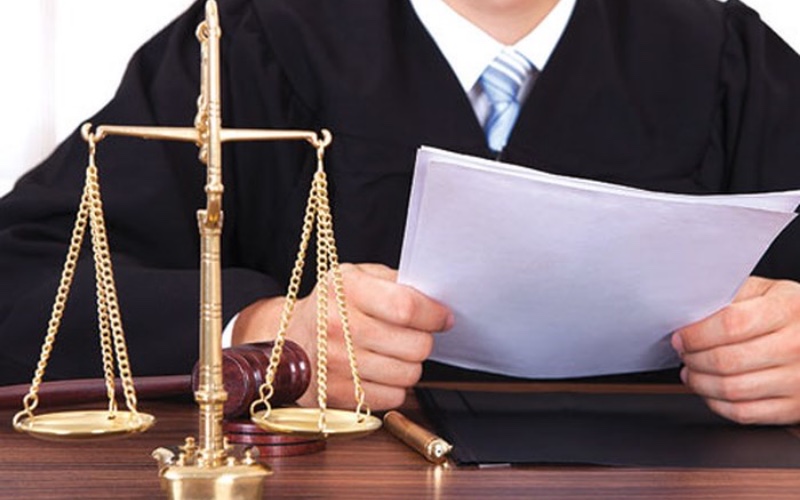The practice of trial shows that not all judgments and decisions of courts at all levels are resolved correctly according to the law, ensuring the legitimate rights and interests of the parties. Especially for appellate judgments and decisions, they will take legal effect immediately upon pronouncement, and the parties cannot appeal for retrial. To overcome the situation of violations in the application of law, serious violations of litigation procedures in judgments and decisions that have legal effect, the law has prescribed a procedure for reviewing judgments and decisions, called “Cassation”. In this article, we will explain more about the role of Cassation in civil litigation and important things to note when appealing to Cassation.
Definition and characteristics of Cassation in civil litigation:
Definition
The Cassation procedure allows the court to review judgments or decisions that have legal effect but have serious violations in the application of the law, causing serious damage to the legitimate rights and interests of the parties, infringing upon public interests, state interests, and the legitimate rights and interests of third parties. Cassation can only be conducted when there is a complaint from a person with the authority to appeal according to the provisions of Article 325 of the 2015 Civil Procedure Code.
Characteristics:
Unlike the first instance level and appeal level, Cassation is a special procedure, not a trial level, so they have the following characteristics:
- Cassation procedure is the process of reviewing legally effective judgments or decisions. Although the judgment/decision has legal effect, not all judgments/decisions have content that complies with legal regulations or are executed correctly in litigation procedures. In this case, if the judgment or decision is enforced, it will cause damage that is difficult to restore to the legitimate rights and interests of the related parties. Therefore, to protect the legitimate rights and interests of the parties as well as public interests and the interests of the state, it is necessary to establish a procedure to review these judgments or decisions.
- The involved parties do not have the right to directly appeal to the subject with cassation authority. Instead, the involved parties only have the right to request the person with authority to appeal to cassation. If the person with the authority to appeal to cassation finds that the request of the litigant is well-founded, they will issue a decision to appeal to cassation.
- Unlike the first instance level and appeal level, in which only those involved in the case have the right to file a lawsuit or appeal against a judgment or decision, in the Cassation procedure, any individual or organisation or and agency detects that a judgment or decision contains errors, they have the right to make a request to the person competent to appeal for Cassation.
- According to the provisions of Article 338.1 of the Civil Procedure Code 2015, the Cassation trial is not held in public. In cases where it is deemed necessary, the involved person, people protecting the legitimate rights and interests of the involved parties, and other civil procedure participants will be summoned to attend the trial.

The issues need to be noted when appealing to Cassation:
The person competent to appeal will consider appealing against legally effective judgment/decision if there has one of the grounds specified in Article 326 Civil Procedure Code, and if there is a request form from the involved person or notifications and recommendations from organisation and agency when violations of the law are detected.
Grounds for an appeal to the Cassation
Pursuant to Article 326.1 of Civil Procedure Code 2015, There are three grounds of legal for appealing to the Cassation:
- Firstly, the conclusions in the judgment or decision are not suitable for the situations of the case, causing damage to the legitimate rights and interests of the involved person. In fact, many factors cause inconsistency between the court’s conclusion and the situation of the case. Usually, this is manifested in the court’s failure to comprehensively consider the documents and evidence of the case, leading to an incorrect decision that is not suitable for the circumstances of the case.
- Secondly, there are serious violations of the litigation process that prevent parties from exercising their litigation rights and obligations resulting in their legal rights and interests not being properly protected under the law. The civil procedural law does not provide a specific definition of what constitutes a serious violation of civil litigation process. However, we can refer to provisions in Article 4 Code of Criminal Procedure, which state that: “Serious breach of legal proceedings means that authorities and persons given authority to institute proceedings have not executed or have implemented improperly and inadequately the formalities and procedures, as defined by this Law, have infringed severely the legitimate rights and benefits of entities engaging in proceedings, and have influenced the identification of equitable and comprehensive truths of a lawsuit.” Therefore, if the Court fails to execute the institute proceedings or implements improperly or inadequately the formalities and procedures according to Civil Code 2015, resulting in the parties being unable to exercise their procedural rights and fulfill their legal rights and benefits, it may be considered a serious violation of civil procedural procedures.
For instance, if the law specifies that the court does not explain to the defendant the right to submit a counterclaim before the public hearing, presentation of evidence, and conciliation, which subsequently prevents the defendant from exercising their procedural rights, it could be regarded as a serious violation of the procedural procedures. that significantly alters the nature of the case. Therefore, there is a need to reconsider the final judgments or decisions of the court that have taken effect to rectify this error.
Thirdly, there is a mistake in applying law leading to incorrect judgments or decisions that cause harm to the legal rights and interests of the parties, infringing upon the public interest, the interests of the State, o
Persons competent to and time limit for appeal according to cassation procedures
In accordance with Article 331 Civil Code 2015 stipulates the persons competent to appeal according to cassation procedures
- The Chief Justice of the Supreme People’s Court and the Chairperson of the Supreme People’s Procuracy shall be competent to appeal according to cassation procedures against the legally effective judgments or decisions of the Collegial People’s Court; legally effective judgments or decisions of other Courts when it is deemed necessary, except for cassation decisions of the Council of Judges of the Supreme People’s Court.
- The Chief Justices of the Collegial People’s Courts and the chairpersons of the shall be entitled to appeal according to the cassation procedures against legally effective judgments or decisions of People’s Courts of provinces or People’s Courts of districts within territorial competence.
Cassation procedures are entitled to lodge the appeal within 03 years from the day on which the Court’s judgments/decisions takes legal effect. This is a time limit for all types of cases. However, the time limit for appeal shall be extended by 02 years if there is one of below conditions:
- The involved parties have submitted applications and maintain the application when the time limit for appeal provided has expired;
- Courts’ legally effective judgments/decisions are contrary to law as prescribed in clause 1 Article 326 of this Code, seriously affecting legitimate rights and interests of involved parties and/or third parties, public benefits, State benefits and are subject to appeal to eliminate faults in such legally effective judgments/decisions.
Entities have the right to request the persons competent to appeal according to cassation procedureand time limit for requesting.
According to legal regulations, within 1 year, from the day on which the Court’s judgments/decisions take legal effect, if litigant detects any legal violations in that judgment/decisions, that litigant has right to make a written request to competent authority appeal for considering appeal according to cassation procedure.
In addition to the litigants involved in the case, in cases where the Court, the Procuracy, or other organizations, institutions, or individuals detect legal violations within the legally effective judgments or decisions of the Court, they also have the right to notify in writing the competent authority for appeals according to cassation procedures.
Furthermore, the Chief Justice of the Provincial People’s Court has the right to make a recommendation to the Chief Justice of the High People’s Court or the Chief Justice of the Supreme People’s Court. Similarly, the Chief Justice of the High People’s Court has the right to make a recommendation to the Chief Justice of the Supreme People’s Court for a review of the appeal according to the cassation procedure for judgments or decisions that take legal effect.
Hence, not only the litigants but any organization, institution, or individual who detects a serious legal violation within a legally effective judgment or decision of the Court has the right to notify the competent authority for appeal through the cassation procedure. Not all litigants fully understand legal regulations to identify the Court’s mistake, which is why empowering other organizations, institutions, or individuals plays a crucial role in safeguarding the rights of the litigants.
If a litigant detects a serious legal violation in a legally effective judgment or decision of the Court, they should promptly submit a request to the competent authority for appeal, as described in section 2.2 above. If more than one year has passed since the judgment or decision became legally effective, the litigant can seek assistance from other organizations, institutions, or individuals to notify the competent authority for appeal.

Above is the foundation related to Civil litigation cassation and issues to note when appealing to cassation that Phuoc & Partners share with readers. If you encounter any difficulties related to the legal field, please contact us. Phuoc &Partners is a law firm established in Vietnam and currently has nearly 100 members working in three offices in Ho Chi Minh City, Hanoi and Da Nang. Phuoc & Partners is also considered one of the law firms with a team of staff specializing in the leading legal field in Vietnam and whose practice areas are rated top in the legal market. such as Labour and Employment, Taxation, Mergers and Acquisitions, and Litigation. We are confident that we are one of the Law Firms providing the best legal services to our customers.

